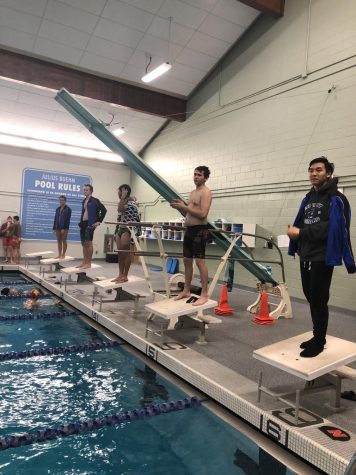Why AP Chemistry will be an unnecessary burden on LHS
April 22, 2015
With course registration for the 2015-2016 school year happening now, class schedules are on everyone’s mind. Students are given new opportunities each year for classes to take: last year, the new Science of Forensics class was all the rage; this year, the new Sports/Event Marketing course piqued the interest of many business-oriented students; and next year, AP Chemistry will likely draw in many science-loving academics. But here’s the problem: AP Chemistry is a burden that Liberty’s faculty and students are not prepared to bear.
AP Chemistry, like AP U.S. History, is one of the few AP classes that is actually a year-long college course, according to the College Board. This means that those who teach these courses have significantly more information to cram into the school year than do those who teach AP classes with semester-long college course equivalents, like AP United States Government & Politics and AP Environmental Science. What’s worse though is that, combined with Liberty’s eight period schedule, which affords students and teachers much less time in class to cover material than the national average, these AP courses with year-long college course equivalents become very, very beastly at Liberty. We’ve seen the evidence with APUSH, for which students typically do 12 hours of homework per week. AP Chemistry will be a similar story.
This type of rigor, however, is not what I’m concerned about. There are plenty of students who want a challenge and are probably capable of handling AP Chemistry. My concern, really, is the volume of students who are going to sign up for it, unaware of just how difficult it is going to be.
Whenever a new AP course is offered, students flock to take it. Just this last year, when AP Geography and AP World History were put on the course catalog for the first time, many unprepared freshmen and sophomores jumped at the opportunity. The result has been somewhat of a catastrophe: talk to the average student in one of those classes and you’ll hear about D averages on exams with ridiculous homework loads and considerable portions of students failing.
AP Chemistry will likely a have a similar fate; students will get excited about the new advanced science opportunity and sign up for it, but will be blindsided by the sheer volume of work required to cover all the material by the AP test in May. The result? Falling GPAs, students chaotically trying to transfer out at the semester, and teachers having to work inordinately hard to accommodate struggling students.
The extensive lab-component of AP Chemistry will also present a major challenge to whichever teacher ends up guiding the course. Setting up for labs is a more time-consuming process than one would think. Set up and clean up for a single lab can easily take three hours, and for a teacher trying to squeeze all of AP Chemistry’s material into an already shortened amount of time, teach other classes with other labs, and grade, this will pose a major difficulty.
For all of the challenges it presents with our eight period schedule, AP Chemistry is an unnecessary course. Liberty already offers three high level science courses: AP Biology, AP Environmental Science, and Honors Physics. And for those few students who want the option of another, AP Chemistry and AP Physics can be taken at Issaquah High School twenty minutes away. Moreover, the introduction of AP Chemistry will likely divert students away from Honors Physics, an extremely rewarding, yet difficult course that has long been a hallmark of advanced classes at Liberty.
While I commend the administration for trying to diversify course offerings for students, the decision to implement AP Chemistry here is not a wise one. All in all, it’s a pain to the science department and a potential pitfall to students. Although it’s too late to reverse the offering for the 2015-2016 school year, I urge the administration to consider putting it on hold the following year.












